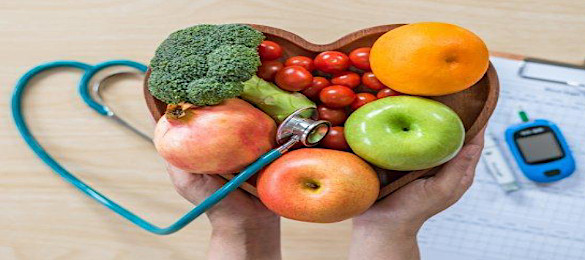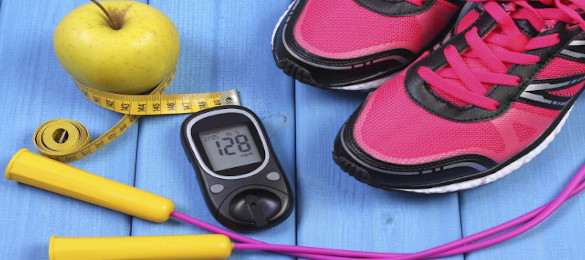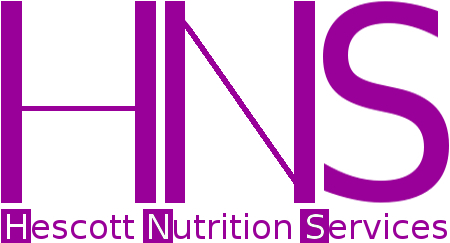.
Welcome to my blog!
.
Seven Truths About Diabetes
By Hescott Nutrition Services | posted in February, 2022 | Type 1 and 2 Diabetes, Type of diabetes, Warning signs of diabetes, Screening for Diabetes, Physical Activities, Insulin resistance and prediabetes, Metabolic disorder

Are you searching the web for useful information about diabetes? I'm sure there's no shortage of advice, but it's often hard to separate fact from fiction. We're here to help! Diabetes is a complex, demanding disease that requires constant attention and action. But with the right knowledge and support team, managing your health gets easier.
We know that having diabetes puts you at risk for other serious health problems. The good news is you may be able to prevent complications by managing your diabetes with the support of your healthcare team. Diabetes is a metabolic disorder that causes issues with blood glucose levels and insulin, a hormone produced in the pancreas. It’s a common, yet serious condition that often requires lifelong management. There are different types of diabetes, as well as conditions that are precursors for a diabetes diagnosis, like insulin resistance and prediabetes. This article will break down the seven truths about diabetes.
Fact 1: Insulin resistance and prediabetes occur when the body doesn't respond to insulin properly.
Let's start with the key hormone insulin. The pancreas makes this vital hormone that helps your muscles, fat, and liver use blood glucose for energy. We get blood glucose, also called blood sugar, from the foods we eat and from the liver.
Typically, blood glucose levels rise after eating and then the pancreas releases enough insulin into the blood to help move glucose into our cells. If muscle, fat, and liver cells don't respond to insulin, glucose sticks around in the blood. When cells stop responding to insulin, the body has a tough time using blood sugar for energy.
Consistently having high blood glucose levels damages the body. Over time, insulin resistance can lead to prediabetes and eventually type 2 diabetes.
Fact 2: Type 1 and Type 2 diabetes are different types of diabetes.
Type 1 diabetes is an autoimmune disease. This means the body's immune system mistakenly destroys the pancreatic cells that produce insulin. There is no cure, but since the discovery of insulin, people with type 1 diabetes can manage their condition. Type 1 diabetes is sometimes called "juvenile diabetes" because children and young adults are more likely to be diagnosed.
What causes type 1 diabetes? Some people have a genetic factor that increases the risk of developing type 1 diabetes. Some research also suggests that being exposed to specific environmental triggers or viral infections can lead to type 1 diabetes.
Type 2 diabetes is characterized by insulin resistance and the progressive failure of pancreatic cells. This means the body's cells may not respond well to insulin and/or the pancreas may stop producing insulin over time
Many factors impact the risk of developing type 2 diabetes. Risk factors for type 2 diabetes that we cannot control include age, family history, and race. Risk factors for type 2 diabetes that we can control include body weight, physical activity, and lifestyle habits. These factors influence how adipose tissue (fat tissue), the liver, and the pancreas all react to insulin and blood glucose.
Fact 3: The types of diabetes may have similar or different warning signs.
People with insulin resistance, prediabetes, and even type 2 diabetes may not have any symptoms. These conditions often go undetected until the disease has progressed or until another health issue shows up. Some people may see darkened skin spots or skin tags in their armpits or on their necks (a condition called acanthosis nigricans).
The symptoms of type 1 and 2 diabetes may appear over time. General signs of diabetes include:
- Frequent urination
- Frequent thirst
- Frequent hunger
- Unintentional weight loss
- Dry mouth
- Fatigue
- Blurred vision
- Yeast infections
Other warning signs that suggest type 1 diabetes:
- Bedwetting
- Flu-like symptoms that don't go away
- Breath that smells like fruit
Other warning signs that suggest type 2 diabetes:
- Slow-healing wounds
- Numbness or tingling in hands or feet
- Heart problems
Fact 4: There are various tools to screen for and diagnose diabetes.
If you notice any of the symptoms of diabetes, contact your primary care physician for an appointment. Your physician will ask you about your symptoms and will decide which test may help determine what's going on.
Most often used for evaluating blood sugar levels are the fasting plasma glucose (FPG) test and the Hemoglobin A1c (HbA1c) test.
The FPG test measures blood glucose levels at one moment in time. Your physician will likely recommend fasting for at least 8 hours before this test. We consider a normal FPG to be less than 100 mg/dl. Prediabetes is indicated by an FPG of 100-125 mg/dl. An FPG over 126 mg/dl is considered diabetes.
The A1c test is a blood test that shows your average blood glucose levels over the past 3 months. The test reports a percentage: the higher the percentage, the higher your average blood glucose levels. We consider a normal A1c level to be below 5.7%. Prediabetes is indicated by an A1c of 5.7% to 6.4%. An A1c of 6.5% or higher is considered type 2 diabetes. There are some concerns with using the A1c test alone to diagnose diabetes. Your doctor will consider other factors, such as age, health conditions, and race.
Your care team may also use other screening and diagnostic tests, including:
- Oral Glucose Tolerance Test (OGTT) – This test checks blood sugar levels before and two hours after drinking a beverage high in carbohydrates. High blood sugar levels two hours after drinking the beverage may indicate diabetes.
- Random Plasma Glucose Test – This test checks blood sugar levels randomly when other diabetes symptoms are occurring.
- Insulin in the Blood - This test measures how much insulin is in your blood. If insulin levels are high, it may indicate insulin resistance or type 2 diabetes. If insulin levels are low, it may indicate type 1 diabetes.
- Ketones in the Blood - This test shows ketone levels in your blood. Your cells produce ketones if they do not have enough glucose. High levels of ketones in the blood may indicate diabetes.
- Ketones in Urine - This test shows ketone levels in your urine. High levels of ketones in urine may indicate diabetes.
Even though these tests can suggest or confirm a diabetes diagnosis, it's not always clear what type you have. Besides the tests above, your healthcare team may use an autoantibodies test. This test looks for the autoantibodies that are more common in type 1 diabetes.
Fact 5: Managing diabetes requires a plan.

From insulin resistance to type 1 diabetes, successfully managing your condition requires a plan. If you have type 1 diabetes, you will need insulin. Some people with type 2 diabetes may also require insulin.
The year 2021 marked 100 years since the discovery of insulin. The advancement of diabetes technologies allow for several ways of getting insulin and managing blood sugar levels, including injections, pens, blood sugar meters, and oral medications. Review the advantages and disadvantages of each one with your doctor to determine what works best for you.
Likely your plan requires that you make some lifestyle changes like adjusting food choices and exercising more. Your doctor may also suggest taking certain medications to help manage blood sugar levels.
Managing diabetes is easier today than it was in the past. Now there are more tools like smart phone apps with many helpful tracking methods. These apps give you feedback when you log blood glucose levels, exercise, medications, or other activities. Using an app as part of a treatment plan from your doctor can help you manage your blood glucose levels. Research shows that using diabetes management apps may help people improve their A1c levels and reduce health complications.
Fact 6: Food choices affect your diabetes health

Eating too much sugar or eating any one food does not directly cause diabetes. Instead, it is your overall food choices that have a long-term effect on your health. The key is choosing a variety of foods from each food group in appropriate portions: lean proteins, vegetables, fruits, whole grains, nuts, seeds, legumes, and healthy fats.
Selecting foods that help keep your blood glucose in target range can help you feel better and help prevent other health complications. And keep in mind each person's body responds slightly differently to specific foods and various portions. We all have different needs.
Too little or too much food can also change how effective your medications are and may impact blood sugar levels. Talk with your diabetes healthcare provider about how to coordinate meals with your medications. Sign-up for a FREE diabetes meal plan trial .
Fact 7: Physical activity helps manage diabetes.

Studies have shown that all forms of exercise help lower A1c values, which is often a goal for people with diabetes. For those who are insulin resistant or have prediabetes, resistance training and aerobic exercise can help lower insulin resistance.
Muscles use blood glucose for energy. Plus, exercise can help your body use insulin more efficiently. These factors work together to help improve your overall health.
If you use insulin, it's important to check blood glucose levels before, during, and after exercise to evaluate how your body reacts. Since exercise affects your blood glucose levels, it's important to talk with your healthcare team to figure out an exercise plan.
Final thoughts on diabetes seven truths.
The first step to managing your health is seeing your doctor. Don't panic if your blood sugar level or A1c is high. But be ready to take action! A combination of meal planning, physical activity, and medicine can improve your numbers. Research shows that following a diabetes management plan developed by you and your healthcare team and consistently practicing healthy lifestyle habits can help you live a healthy, happy life with diabetes.
Consult a Registered Dietitian or nutrition expert who can provide personalized nutrition advice for your health, lifestyle, and nutrition goals. I can help! Book an appointment to further explore your health goals.
